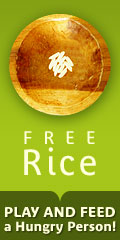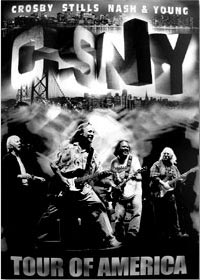
Music Matters Albums
Listen to samples of
music that matters.
Through iTunes
Through Amazon
Issue 15
Issue 16
Issue 17
Issue 18
Issue 19
Issue 20
Issue 21
Issue 22
Issue 23
Issue 24
Issue 25
Issue 26
Issue 27
Issue 28
Issue 29
Issue 30
![]()


Crosby, Stills, Nash & Young Link
CSNY Link
-
Crosby, Stills, Nash & Young
Arrowhead Pond, Anaheim, CA
February 17, 2002
 Just where a group like Crosby, Stills, Nash & Young fits into the current post 9/11 American culture can be a bit of a brain-teaser. When this super group first made records back in the early '70s, songs such as "Ohio" and "Almost Cut My Hair" expressed a collective disgust with, and distrust of, the government and dominant culture those turbulent years. But once terrorists attacked the U.S. on American soil, flag-waving patriotism quickly came back into vogue. Yet diehard patriots who supported the U.S. forces in Vietnam back in CSNY's heyday—with an "America, love it or leave it" attitude—were sometimes viewed as the enemy by those who bought into Crosby, Stills, Nash & Young's brand of pacifist politics. And while CSNY will never be tempted into going Lee Greenwood or Charlie Daniels with dogmatic pro-Americanism, they did express a subtle patriotism of the human spirit during this concert at the Pond in Anaheim—one that never relied upon a particular flag or nation for its central rallying point.
Just where a group like Crosby, Stills, Nash & Young fits into the current post 9/11 American culture can be a bit of a brain-teaser. When this super group first made records back in the early '70s, songs such as "Ohio" and "Almost Cut My Hair" expressed a collective disgust with, and distrust of, the government and dominant culture those turbulent years. But once terrorists attacked the U.S. on American soil, flag-waving patriotism quickly came back into vogue. Yet diehard patriots who supported the U.S. forces in Vietnam back in CSNY's heyday—with an "America, love it or leave it" attitude—were sometimes viewed as the enemy by those who bought into Crosby, Stills, Nash & Young's brand of pacifist politics. And while CSNY will never be tempted into going Lee Greenwood or Charlie Daniels with dogmatic pro-Americanism, they did express a subtle patriotism of the human spirit during this concert at the Pond in Anaheim—one that never relied upon a particular flag or nation for its central rallying point.
Neil Young proved once again how rust never sleeps, as a few of his newer songs spoke directly to the newly enlightened America. "Two Old Friends," from the new "Are You Passionate?" album, softly spoke about a desire to learn to love others better, while his performance of "Rockin' In The Free World" took on a new more emotionally militant meaning, mainly along the lines of standing up for freedom.
Playing with his three old friends also gave Young a forum to sing some of his gentler songs—ones that don't always meet the noisy grunge criteria of his Crazy Horse audience’s expectations. These acoustic selections included "Old Man," which found the graying crowd empathizing now more than ever with that old man. "Harvest Moon," which benefited from the smooth harmonies of his three band mates, also floated by like a welcome cool breeze.
Crosby, Stills and Nash may not be viewed today as the vital musical organisms that Young has continued to be, but they're not ready for the oldies circuit either. Still when they attempted to make political statements, these awkward moments came off more strident and less universal then did Young's. Nash's "Military Madness" told us what we already know about the insanity of the war machine—but not in an original way. Stills' "Feed The People" went little deeper than its title in a plea to end world hunger.
But when these group members (Young included) sang love songs, many of their classic rock staples showed how confidently they've stood the test of time. Nash was at his most vulnerable with "I Used To Be King," and homey sentiments of "Our House" spoke volumes to the many families gathered in the house.
Stills crowning moment came when he sat at the piano and sang the bluesy "Old Man Trouble." By song's end, he had kicked the bench out from behind him and was banging on the keys with large reserves of pure blues power. Crosby, on the other hand, was simply transcendent on "Guinnevere," which may be one of the prettiest songs of the rock era.
The night was divided into three separate parts. The first break was a normal intermission, whereas the second one was called the 7th Inning Stretch. This last interruption served as chance for stagehands to clear stools from the acoustic-ready platform, and prepare it for one last closing rock out. A video of the late Harry Cary singing "Take Me Out To The Ball Game" was shown on the jumbo screens for this final interlude, and naturally, it had everybody singing along.
The band encored with "Long May You Run," which was a song that started out as Neil Young's dual ode to his car and his girl, but it served a greater purpose here. It acted as an affectionate plea for Americans to stay the course by doing the right thing, even in the face of difficult odds. In its simple and unassuming way, this song neatly summed up Crosby, Stills, Nash & Young's infectious patriotism of the spirit, which sent this crowd away with new courage to face its long and unpredictable road ahead.—Dan MacIntosh